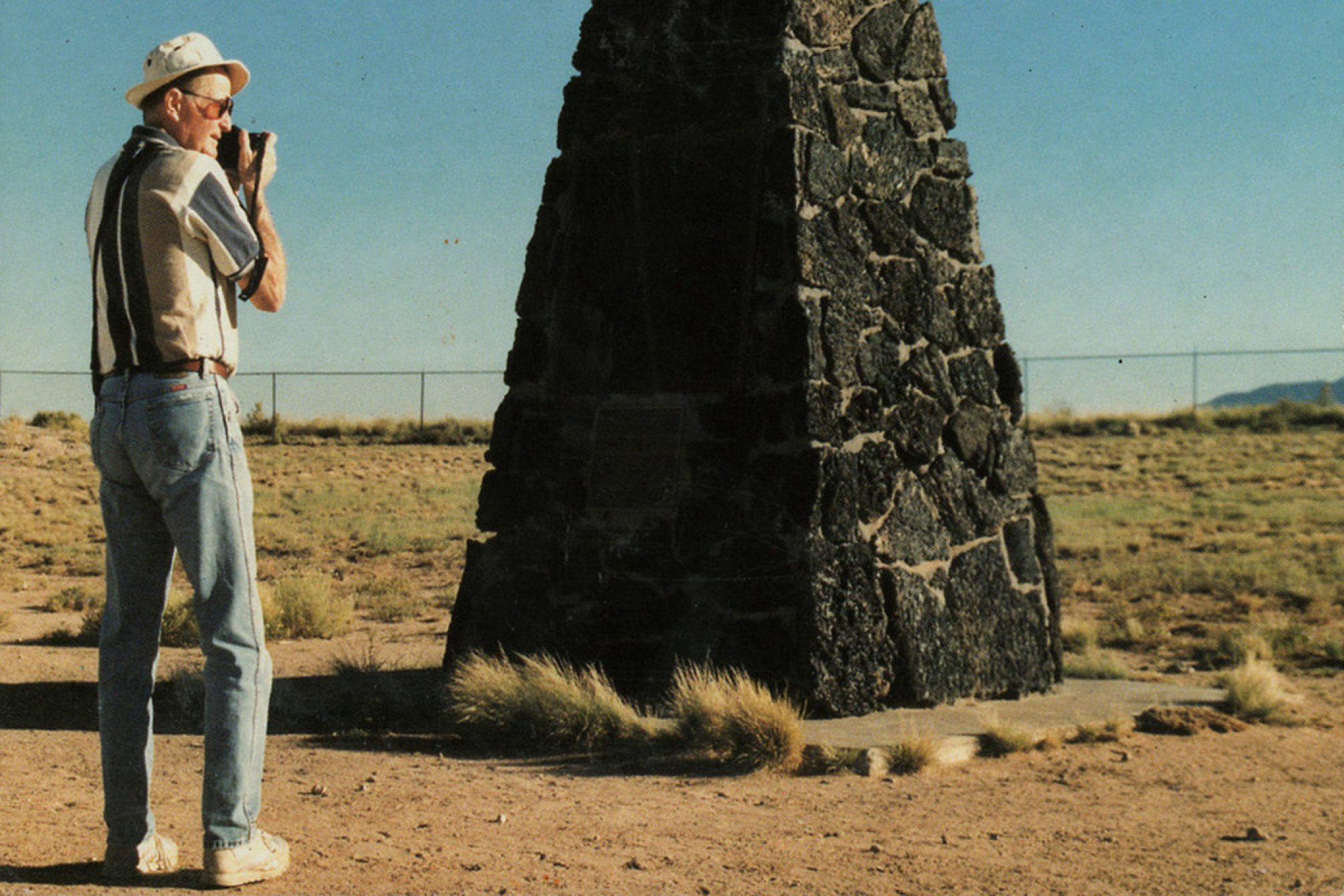 Features
Features
10 slept-on albums that should have been absolutely huge
The lost classics
A Great Lost Album is one that’s as good as any of dance music’s finest and most successful but which somehow slipped under the radar. Here, Mixmag’s writers pick the records that should’ve been huge
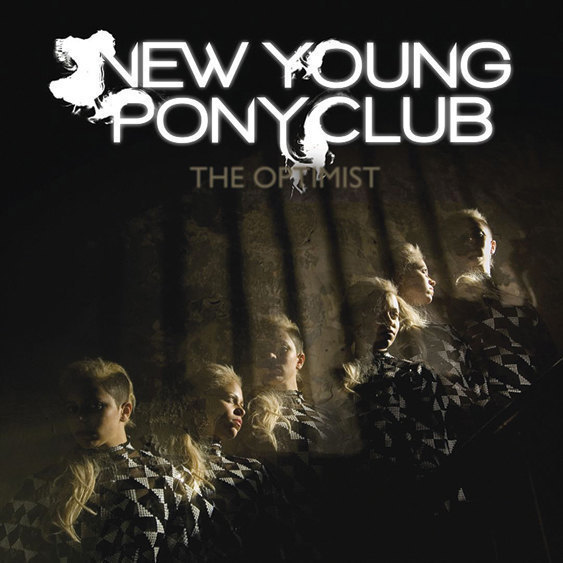
New Young Pony Club ‘The Optimist’ (PIAS, 2010)
If 2007 was the year of ‘nu rave’, with Klaxons even winning the Mercury Music Prize, by 2010 the media had their knives out for any act vaguely associated with it. It seems unbelievable that the catchy new-wave-meets-electro-pop perfection of New Young Pony Club’s second album could have been greeted with anything other than excitement. With no filler whatsoever, and absolute belters such as the queasy, dub-tinted ‘Stone’ and the 24-carat dark-pop of ‘Rapture’, seven years on it still sounds catchy, dynamic, different and sexy, and with more bounce than a trampoline. Yet it was met with apathy, and even disdain.
“Nobody gave a shit,” says singer Tahita Bulmer. “A journalist asked us if we were doing it for the [free] clothes! But we were music nerds – we wanted to show off a bunch of tracks, not play fashion shows.” Coming off the back of three years touring, the core duo of Bulmer and Andy Spence let their love of “Gothy synth stuff like The Cure and Curve” bleed into the album, but with “not the best team” behind them and what Bulmer regards as inherent press sexism (“They were all about Foals and Vampire Weekend”), ‘The Optimist’ fell on stony ground. Thomas H Green
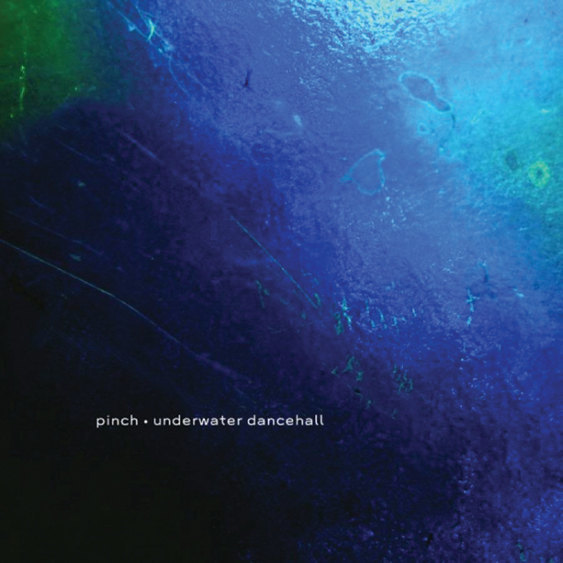
Pinch ‘Underwater Dancehall’ (Tectonic, 2007)
Where many early dubstep heads would jump to herald Loefah or Skream as poster-boys, Pinch was Bristol’s pied piper, far from the nascent genre’s South London epicentre, whose debut solidified the hype. Released at the tail-end of 2007, when most of us were dancing to Coki’s ‘Spongebob’ or 2562’s immersive ‘Kameleon’, the Tectonic boss unveiled ‘Underwater Dancehall’. With minimal loops melded to succulent, textured aesthetics, Pinch’s use of vocals intensified what dubstep could be, from Yolanda’s r’n’b smoothness on ‘Get Up’ to the erratic rudeboy spits of Jukali on ‘Gangsta’ and ‘Trauma’. It was Pinch’s ultimate version of a British tribal-meets-reggae sound, with an instrumental package that satisfied the scene’s elitists, but while it flipped the zeitgeist on its head it didn’t win the praise it deserved. Its spaciousness and accessibility stepped out of line with the typical dubstep sound – but that’s exactly what makes it one of the great lost albums of the era. Leah Jade Connolly
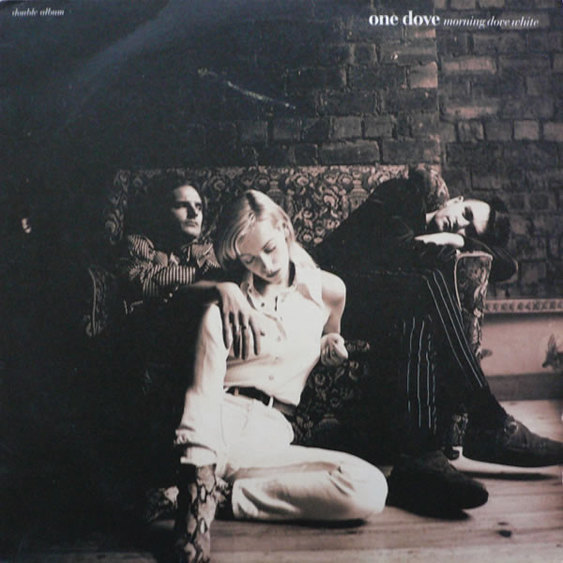
One Dove ‘Morning Dove White’ (Junior Boys Own/London) 1993
‘Sixties girl group and country melodies; psychedelic guitar wrangling; slow, lolloping breaks; dub basslines out the yin-yang; outer space ambient chords; the breathy voice of Dot Allison whispering and crooning about secrets, sadness and intrigue, all bound together by the wild studio invention of a young Andrew Weatherall, fresh from hitting it big with ‘Screamadelica’. The music of Glaswegian trio Allison, Ian Carmichael and Jim McKinven was the ultimate expression of the bittersweet collapse of the comedown, and was a morning-after staple for those who knew.
Carmichael remembers trepidation at working with their DJ hero Weatherall, “splicing tape with shaking hands... thinking it might all be a mess”, and the triumph of the final album: “we thought we were unstoppable... for a while.” Sadly, sales were modest, but major label London Records expected “the next Eurythmics”, and when they rejected their second album, in-band tensions got too much and they split. It’s a tragedy they didn’t do more, but One Dove’s influence can be heard throughout the 90s: in particular, William Orbit – who remixed their singles – would have huge success with a similar sound for All Saints and Madonna. And, of course, they left that one great album, which still soothes and seduces to this day. Joe Muggs
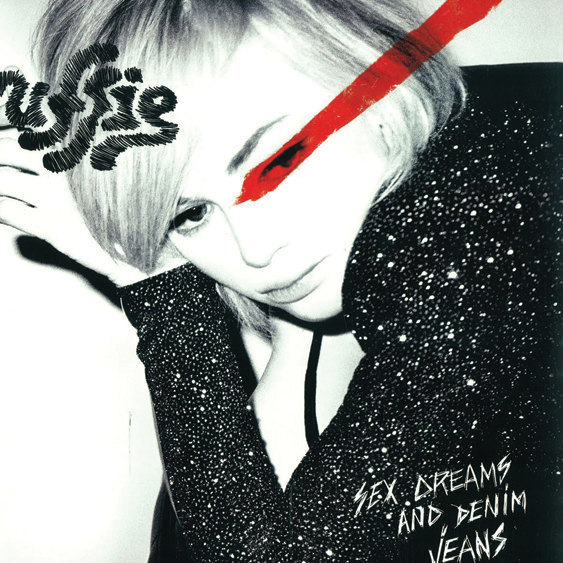
Uffie ‘Sex Dreams and Denim Jeans’ (Ed Banger, 2010)
About a decade ago, Ed Banger Records was one of the most unstoppable labels on the planet. While it still has a huge amount of momentum, back then it was just starting to put out early records from the likes of Justice, Breakbot and Mr Oizo. In terms of female acts on the imprint’s roster, it was all about Uffie, the Miami-born singer-songwriter who’d been welcomed into the Parisian crew alongside DJ-producer Feadz. She brought forward a trademark snarl that combined soft tones with eyebrow-raising, sexualised lyrics, and it made her a clubland star.
After ‘Pop The Glock’ rolled out in 2006, and once she added her unmistakable attitude to Justice’s ‘The Party’, it was almost set in stone that she would take over the world alongside the electro giants she was paired with. Alas, her debut album ‘Sex Dreams And Denim Jeans’, which dropped in 2010, has since become a forgotten contribution to the Ed Banger hall of fame. Favourable reviews aside, the LP contained songs she’d already released in the four years prior and chart positions were poor across the board. Even with the inclusion of Mr Oizo and Pharrell on the album, her popularity began to dip and she subsequently parted ways with Busy P’s French powerhouse. She’s said to be working on new material now, but having not released anything since that live-wired debut, we hope she hasn’t missed her moment. Jeremy Abbott
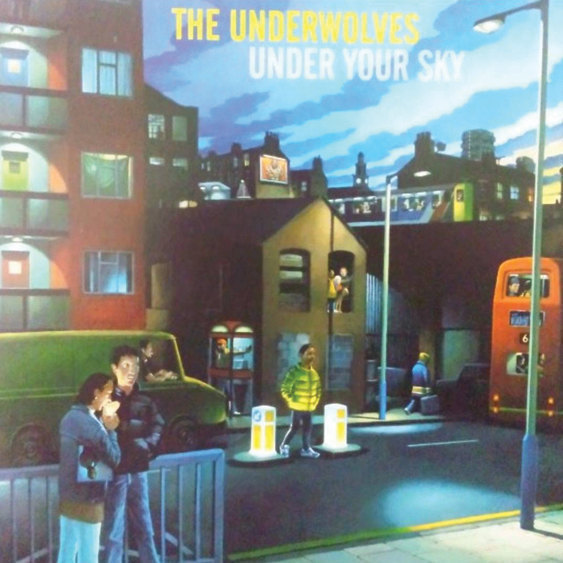
The Underwolves ‘Under Your Sky’ (Jazzanova Compost) 2001
The debut from London musical polyglots The Underwolves could easily be renamed ‘A Series Of Unfortunate Events’. The Underwolves’ chief protagonists, Ned Kelly and Professor Stretch, signed to Island sub-label Blue in the late 90s and made a record that meandered across the urban music continuum. Drum & bass was its red thread. It’s there explicitly in the grand, orchestral beats suite, ‘Shaken’, while ‘Prema Redentor’ is a Venn diagram where jungle, Alice Coltrane and Talvin Singh meet. But ‘Under Your Sky’ embraces much more. Jeb Loy Nichols’s vocals lend a soulful, country-tinged edge to several tracks, notably ‘Bird Song’, a lazy, throbbing dub/downtempo mash-up. ‘Under Your Sky’ is a dazzling snapshot of Britain’s open-minded musical landscape at the turn of the century. Yet you’ve probably never heard it. DJ Ross Allen, who signed The Underwolves to Blue, said there was “always drama, lack of money, hustling”. Ned got mugged in India when recording the strings, one of the female vocalists got jailed for drug-smuggling and then Island’s new owners adopted a more chart-friendly policy. The Underwolves were too cool for that. It would be 2001, two years after its slated release, before ‘Under Your Sky’ was released, on Jazzanova Compost Records. “It had no radio singles,” muses Allen now. “I wonder how it would have fared on Spotify if that had existed back then. A lot better I think.” Stephen Worthy
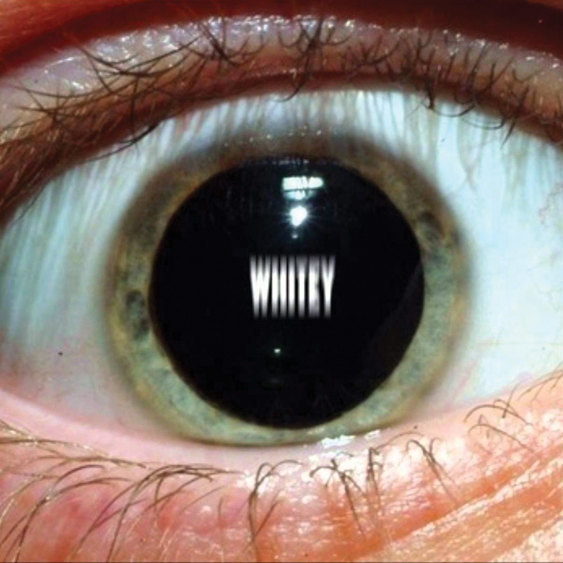
Whitey ‘Lost Summer’ (Bad Life) 2012
Whitey should be Britain’s answer to James Murphy, and the fact that he isn’t is confusing. ‘Lost Summer’, his fifth album, is nine tracks of catchy, hooky, clever, electro-infused indie that’s buzzing with colour, distinction and drama. Before its release, a string of singles had been licenced to huge cultural touchstones such as Breaking Bad, The Sopranos, Entourage and Grand Theft Auto IV. Via televisual osmosis Whitey’s compelling electronic music was reaching an army of new fans, in the same way Moby’s ‘Play’ once did.
After his first album, Whitey had divorced himself from ‘the music industry’, opting instead to release music independently, stripping his back catalogue from iTunes and Spotify and in one famous instance publically shaming a TV producer who’d asked to use his music for free (“Would you walk into someone’s home, eat from their bowl, and walk out smiling saying, ‘So sorry, I’ve no budget for food?’.”)
‘Lost Summer’ should have been a two-finger salute to the greedy labels and execs. With its emotive and relatable tales of losing yourself on a Saturday night or living for the moment, the album showcased anthems worthy of Glastonbury Pyramid Stage sing-alongs. It’s a masterful body of work with all the grit, drive and musical talent to smash the industry. If only more people had heard it! Nick Stevenson
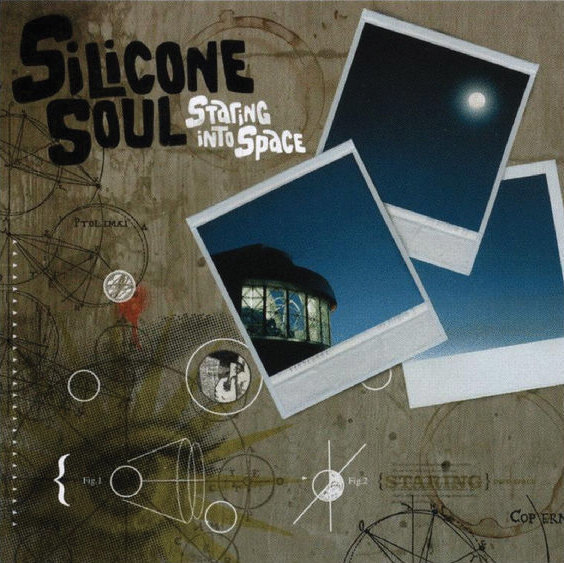
Silicone Soul ‘Staring Into Space’ (Soma, 2005)
In this writer’s household, ‘Staring Into Space’ is one of the most-listened to albums of all time. Ever. It’s that good. And it’s even better as the afterparty slides into the after-afterparty. From the silky opening chord of trumpet-fuelled throbber ‘When the Devil Drives” to the soulfully vocalled, should-have-been-hit ‘Feeling Blue’ to the kitsch, wah-wah organ soundtrackin’ of ‘Room 666 at the Deadly Hotel’, it’s almost the perfect house album: classy, spacey, tuneful, groove-driven, and sensually propulsive. So there must be a good reason it never pops up in those Best 50 Dance Albums of All Time lists, right?
Silicone Soul are Scottish DJ-producer duo Craig Morrison and Graeme Reedie. In 2001 they had a No 15 chart hit with a rejigged version of their bongo-tastic club corker ‘Right On’. Like Daft Punk before them, they cut a deal between their label, Soma, and Virgin Records. But by the time they finished making ‘Staring Into Space’ their Virgin sub-label, VC, had folded. “It took us five years,” recalls Reedie; “It was like pulling teeth. There’s a process in digital production called ‘dithering’. I can say, truthfully, that we spent years dithering and re-dithering.” By the time the LP finally appeared the world had moved on. The duo continue to this day, notably with their highly respected Darkroom Dubs imprint, but in other circumstances, their astounding second album would have sent them stratospheric. Thomas H Green
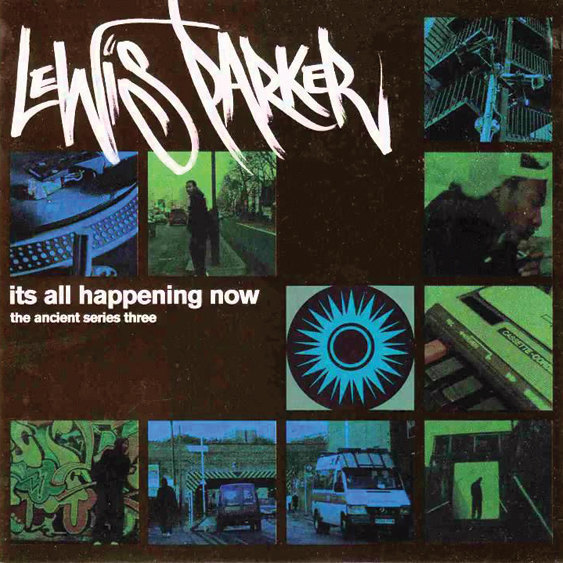
Lewis Parker ‘It’s All Happening Now’ (Melankolic, 2002)
UK hip hop’s heyday took place at the turn of the millennium, with scene-defining albums from Roots Manuva, Ty, Jehst, Rodney P and Mark B & Blade, all dropping between 2000–2003. While Manuva’s ‘Run Come Save Me’ is the era’s most popular and banger-laden statement, ‘It’s All Happening Now’ by Lewis Parker is the LP that’s gone down as a cult classic. Released on Massive Attack’s Melankolic imprint in ’02, it’s a sprawling journey through Brit boom-bap that marries Parker’s nimble, poetic flow and analogue production techniques with a penchant for uber-obscure samples (clearance pushed the album’s release date back a whopping 18 months). The record is undercut with paranoia, brought on by the onset of 21st century surveillance and technology, but Parker always keeps his head above water, pledging his allegiance to nature like a modern-day Thoreau (the references to the great outdoors are numerous). Fifteen years on, this visionary work is largely forgotten – perhaps because the UK hip hop industry imploded beneath the strain of beefs, shady behaviour and file sharing, or maybe it was just that grime exploded and stole the thunder. Never mind; ‘It’s All Happening’ will always be a groundbreaking album and Parker remains dedicated to the craft. Check his acclaimed 2010 LP with John Robinson, ‘International Summers’, for further proof. Seb Wheeler
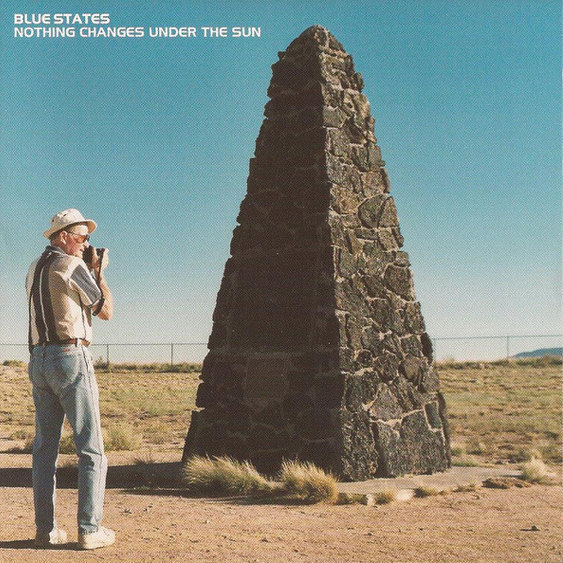
Blues States ‘Nothing Changes Under the Sun’ (Memphis Industries, 2000)
The new millennium gave birth to a chill-out boom. It was the era of Zero 7, Röyksopp, Lemon Jelly et al, but while these three made it way past the 100,000 sales mark, huge critical acclaim for Blue States couldn’t get producer Andy Dragazis’s debut album near those figures. According to Ollie Jacob of Blue States’ label, Memphies Industries, this was down to two things. First off, it was the label’s first ever album, with an initial pressing of only 1,000 CDs and 500 vinyl. And they were very happy to sell those, just doing it “for the fun of it, with no-one holding our hand – if we were the label we are now, it would have been different.” In other words, by the standards of a tiny label, just starting out, it was a great success. The second aspect, he reckons, is that the album is “permeated by an underlying sense of melancholy” that made it not so ripe for TV ad companies to use. He’s right, but that’s what makes ‘Nothing Changes Under the Sun’ so gorgeous: sublime songs such as ‘Your Girl’, alongside a holistic soulful electronic sound. Blue States are still alive and kicking. After a nine year break, the fifth album, ‘Restless Spheres’, appeared last autumn. Dragazis’ debut, however, remains a relatively undiscovered treat, waiting out there for lucky listeners. Ralph Moore
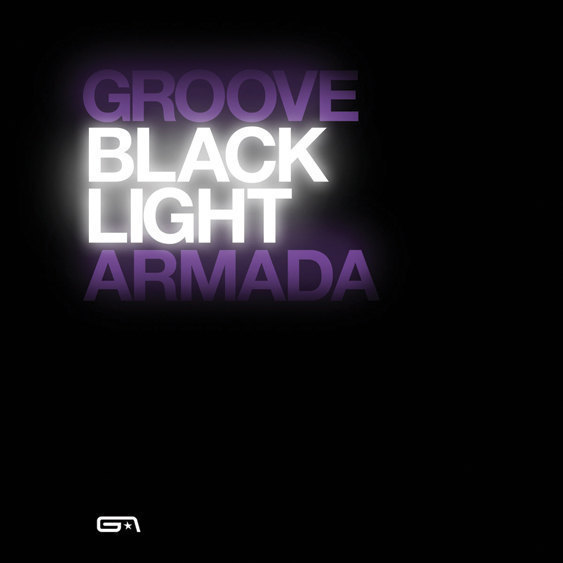
Groove Armada ‘Black Light’ (Cooking Vinyl) 2010
A creative highlight for one of dance music’s most successful production duos, by GA standards this was not a success, sloping apologetically from the UK album charts after three weeks and a high of 26. ‘Black Light’ is an emotional, uncompromising 80s-influenced synth punker released at a time when Groove Armada were in danger of becoming best known for their ubiquitous ad syncs. It was conceived as the duo’s goodbye to the album format, and took their stage show’s successful fusion of ‘live’ bass and drums into the studio, with electronic sequencing keeping everything punchy and euphoric just under the surface of the 80s style scuzz and fuzz and a distorted synth boom running through it like the words in a stick of rock. Perhaps parts were a bit self-consciously retro, a little on the 80s nose, but the anthemic ‘Paper Romance’ is one of the songs of the decade (check the Classixx remix too!). So why did it fare so relatively poorly? Andy Cato reckons that Radio 1’s wounding decision not to playlist the singles “was based not on the music but preconceived ideas of GA. We kind of saw it coming and had even talked about releasing the record under a new name.” The decision to put out the raw and difficult ‘Warsaw’ as the first single didn’t help, either. But it’s still their personal favourite album, and “the live shows were electric”. Maybe the ‘Shaking That Ass’ crowd just wasn’t ready for it. Duncan Dick


